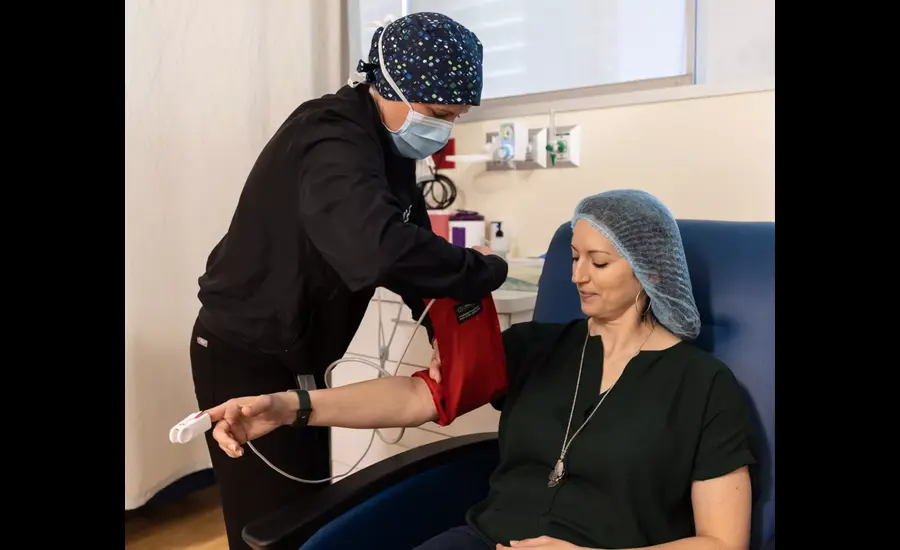How Drug Testing Can Support Felon Employment: A Path to Rehabilitation
Introduction
Felons reentering the workforce often face an uphill battle, hindered by the stigma of their past mistakes. Society’s perception of individuals with a criminal record can create significant barriers to employment, yet their rehabilitation is crucial not only for their well-being but also for the community.
One powerful tool that can aid in this process is drug testing. While drug testing might seem like a hurdle, it can actually serve as a bridge to rebuild trust, demonstrate commitment to sobriety, and open doors to new opportunities.
The Role of Drug Testing in Felon Rehabilitation
Ensuring a Drug-Free Workplace
For both felons and employers, the assurance of a drug-free workplace is foundational. Drug testing helps maintain a safe and productive environment, reducing the risk of incidents that could arise from substance abuse. Furthermore, for felons, passing drug tests consistently can be a clear indicator of their commitment to sobriety and rehabilitation, which is often a requirement for reintegration into the workforce.
Building Trust with Employers
Trust is a critical element in any employment relationship, and for felons, earning that trust can be particularly challenging. Drug testing provides a tangible way for felons to demonstrate their reliability. By adhering to testing requirements, they can gradually rebuild their reputation and prove to employers that they are dependable and committed to maintaining a drug-free lifestyle.
Encouraging Personal Accountability
Drug testing isn’t just about proving something to employers; it’s also about self-accountability. Regular testing encourages felons to take responsibility for their actions and choices, reinforcing the importance of staying on a sober path. This sense of accountability is a key aspect of rehabilitation, fostering personal growth and a positive trajectory in both their professional and personal lives.
Benefits of Drug Testing for Employers
Reduced Risk of Workplace Incidents
Workplace safety is paramount, and drug testing is a critical measure to ensure that all employees, including those with a criminal background, are fit to perform their duties. By identifying potential substance abuse issues before they lead to accidents or mistakes, employers can create a safer work environment for everyone.
Increased Productivity and Safety
Furthermore, substance abuse can severely impact an employee’s ability to perform their job efficiently. For employers, implementing drug testing can lead to higher productivity levels, as employees who are free from substance abuse are generally more focused, reliable, and effective in their roles.
Strengthening Company Reputation
Employers who are known for giving second chances to felons can significantly enhance their reputation. A commitment to drug testing shows that the company values a safe, drug-free workplace while also supporting rehabilitation efforts. This dual focus can attract positive attention and make the company a more appealing place to work for a diverse range of applicants.
Challenges Felons Face in the Job Market
The Stigma of a Criminal Record
A criminal record can be a heavy burden, often leading to immediate disqualification from many job opportunities. The stigma associated with past convictions can overshadow an individual’s skills and potential, making it difficult for felons to find meaningful employment.
Trust Issues with Employers
Many employers are hesitant to hire felons due to concerns about trustworthiness and reliability. Even when a felon has demonstrated positive changes, employers may still be wary of the potential risks, making it challenging for felons to secure a job offer.
Limited Job Opportunities
Felons often find that their employment options are limited to lower-paying or less desirable positions, regardless of their qualifications or experience. This limitation can perpetuate a cycle of poverty and frustration, making it harder for felons to fully reintegrate into society.
How Drug Testing Helps Overcome Employment Barriers
Proving Commitment to Sobriety
Drug testing provides felons with a way to prove their commitment to a drug-free lifestyle. By consistently passing these tests, they can demonstrate to potential employers that they are serious about their rehabilitation and ready to take on the responsibilities of a job.
Offering Assurance to Employers
For employers, knowing that a candidate has passed a drug test offers reassurance that the individual is less likely to engage in substance abuse that could affect their job performance. This assurance can make employers more willing to take a chance on a candidate with a criminal record.
Opening Doors to More Opportunities
Furthermore, as felons prove their reliability through consistent drug testing, more job opportunities may become available to them. Employers who see the dedication to maintaining sobriety may be more inclined to offer higher-level positions or consider felons for roles that were previously out of reach.
The Role of Employers in Supporting Felon Employment
Creating a Supportive Work Environment
Employers can play a significant role in the rehabilitation of felons by creating a supportive and inclusive work environment. This includes offering resources such as counseling or mentorship programs and fostering a culture that values second chances and personal growth.
Providing Second Chances
Offering second chances to felons is not just about filling a position; it’s about contributing to the broader goal of rehabilitation and reintegration. Employers who are willing to look beyond a criminal record and focus on the potential of the individual can make a significant impact on both the employee’s life and the community.
Implementing Comprehensive Drug Testing Programs
A well-structured drug testing program is essential for ensuring that all employees, including felons, are held to the same standards. Employers should ensure that their testing procedures are fair, consistent, and aligned with the goal of supporting a safe and drug-free workplace.
Best Practices for Implementing Drug Testing in Felon Employment
Consistency in Testing Procedures
To ensure fairness, employers should maintain consistency in their drug testing procedures. This includes using the same testing methods for all employees and following a clear, transparent process for handling positive results.
Providing Access to Resources and Support
Employers should consider offering resources such as substance abuse counseling or support groups as part of their drug testing program. Furthermore, these resources can help felons stay on the path to sobriety and reinforce their commitment to rehabilitation.
Collaboration with Rehabilitation Programs
Partnering with rehabilitation programs can enhance the effectiveness of drug testing initiatives. Employers can work with these programs to provide additional support to felons, ensuring they have the tools they need to succeed in the workplace.
Legal Considerations in Drug Testing for Felon Employment
Understanding Employee Rights
Employers must be aware of the legal rights of employees when implementing drug testing programs. This includes understanding the laws surrounding privacy, discrimination, and the handling of test results to ensure that the process is both fair and legally compliant.
Compliance with State and Federal Laws
Drug testing programs must comply with all relevant state and federal regulations. Employers should stay informed about any changes in the law and ensure that their testing procedures meet the required standards to avoid legal issues.
Common Misconceptions about Drug Testing and Felon Employment
Myth vs. Reality
There are many misconceptions about drug testing and felon employment, such as the belief that felons are more likely to fail drug tests or that drug testing is a punitive measure. In reality, drug testing can be a supportive tool that helps felons demonstrate their commitment to rehabilitation.
Addressing Public Perception
Public perception can often be a barrier to the successful reintegration of felons. By promoting the benefits of drug testing and highlighting success stories, employers and advocates can help shift public opinion and reduce the stigma associated with hiring felons.
The Future of Drug Testing in Felon Employment
Innovations in Testing Technology
Advancements in drug testing technology, such as more accurate and less invasive testing methods, are likely to play a significant role in the future of felon employment. These innovations can make the testing process more efficient and accessible, benefiting both employers and employees.
Trends in Rehabilitation Support
As society becomes more aware of the importance of rehabilitation, there is likely to be increased support for programs that help felons reintegrate into the workforce. This includes more comprehensive drug testing programs, as well as initiatives that focus on education, training, and personal development.
Conclusion
Drug testing can be a powerful tool in supporting felon employment and rehabilitation. By providing a clear path to demonstrating sobriety, building trust with employers, and opening up new opportunities, drug testing can help felons overcome the barriers they face in the job market. Employers, too, have a critical role to play in this process, by creating supportive environments and offering second chances. As society continues to evolve, the role of drug testing in felon employment is likely to become even more important, paving the way for more success stories and a brighter future for those looking to turn their lives around.






